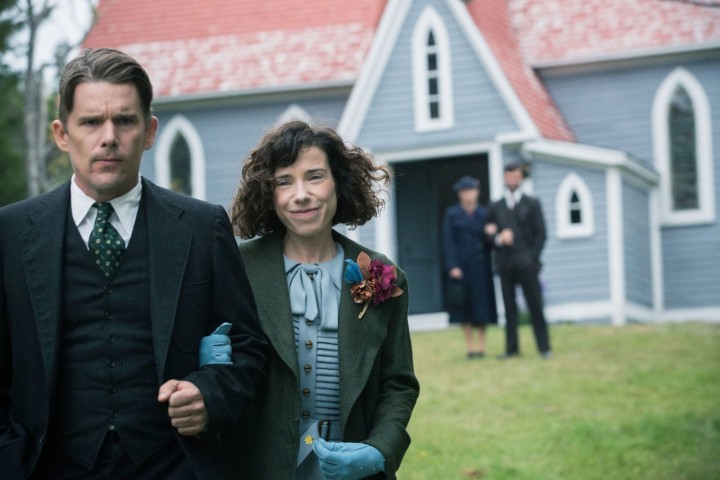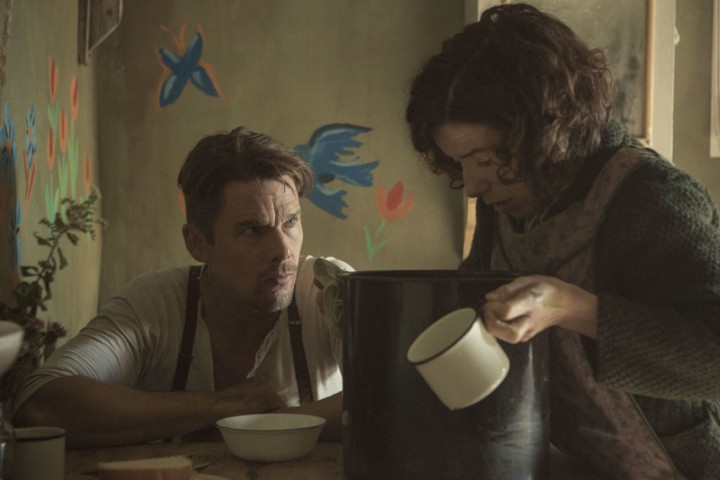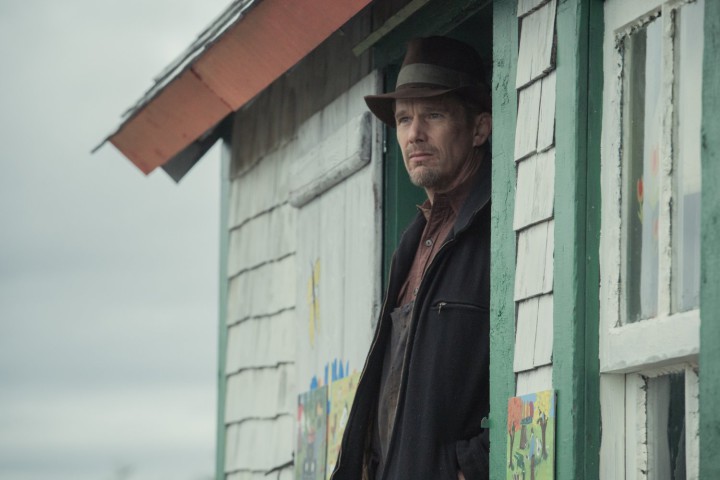Just taking a cursory glance at the reviews for Aisling Walsh’s Maudie, it becomes readily apparent that I’m in the minority when it comes to this film. It’s definitely a movie slathered with an amount of emotion and importance, being both a film about a (literally, in fact) tortured artist (in this case, Canadian folk artist Maud Lewis) and a quiet, slow burn of a meditation on love and art. There’s a constant grasping at prestige that the film wallows in, with its languid pacing and mumbling method acting that simply doesn’t connect with me.
Sally Hawkins plays Maud, who — as she puts it — was “born funny” with arthritis. This means she has difficulty taking care of herself, though she yearns for independence. This draws her to Everett (Ethan Hawke), a grumpy fish peddler who needs a housemaid. The two strike up a relationship of convenience that gradually turns into a begrudging marriage, that then blossoms into Maud becoming a famous artist. At its base, this is the arc of Maudie, but it’s the way that the material is tackled that makes the film difficult to like.
As I mentioned, part of what doesn’t connect is the gravity in which everything’s tackled. This is a quiet movie, which in and of itself isn’t a sin, but there’s a sense that everyone’s aware of it. People speak in hushed, gravelly tones while staring out windows onto dreary, windswept fields. Every scene is punctuated by the music of a lonely guitar that keeps swelling up out of nowhere. The film doesn’t even go full-on depressing, never getting beyond the realm of purely shabby. Sure, it’s got nice cinematography and it’s all nice to look at, but there’s nothing really propelling the film forward besides some modest and none-too-exciting human drama.
And this human drama is the real issue, specifically the way in which the film handles its characters, especially Everett. I suppose there’s something to be said for how unsentimental Maudie is, or at least in its attempts at examining a complicated relationship. I’m actually reluctant to use the word “complicated,” because it’s a generally loveless marriage, punctuated by Everett’s general misogyny and abuse of Maud. He spends most of the movie psychologically and physically abusing her until the final reel comes up and — afraid that he’ll be left alone — he decides he loves her. There’s too much time put into creating sympathy for Everett, a man with no real defining characteristics besides his general miserableness.
It makes for a movie that wants a bigger emotional impact than it deserves, something that stops it from being more distinguishable. Rated PG-13 for some thematic content and brief sexuality. Now playing at Fine Arts Theater.








A bit cynical, insensitive, and grouchy for my taste. I think that the reviewer should realize that this is a “romance” occurring in the Atlantic Provinces of Canada, not Paris. A rather different setting from, say, La La Land. Context is important. And sensitive understanding of ordinary people and their situations.